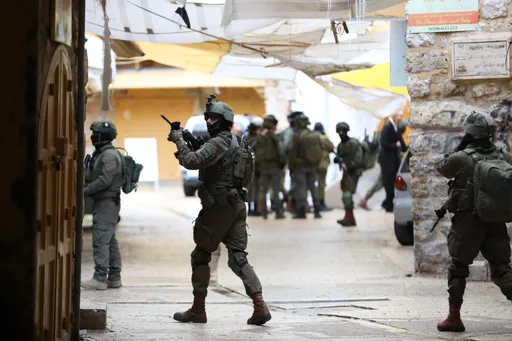Many in Lebanon were outraged on Monday when social media footage emerged of the arrest by Lebanese security forces of the owner of Cafe Em Nazih, a popular bar and restaurant in Beirut. His supporters allege this to be harassment by the state due to him employing Syrian and migrant workers. The Beirut explosion was indiscriminate, but the response to it has exposed the institutional bias against Syrian refugees in Lebanon.
43 of the 180 people killed by the blast on August 4, almost a quarter, were Syrians. “They counted us separately” Faryal* a Syrian refugee living in Beirut tells me “they announced the number of deaths of Lebanese people and they added on the others after – like our lives are less human because we are Syrian.”
One Syrian-Kurd family in Beirut, who live less than 3km from the epicentre of the blast, owe their lives to the quick-thinking of their eldest son who closed the shutter doors to their balcony which overlooks the Beirut port. He did this after hearing the first explosion in order to protect his 5-year-old sister. Shortly after closing them, the second, larger, catastrophic blast happened, throwing him across the room - it fractured his skull. The shutter door saved their lives, but now they are being charged by their landlord to fix it.
Aza*, the mother, says other Lebanese families around them are receiving comparatively more help. She claims a worker from a world-renowned aid agency operating in Beirut, refused to help them due to their nationality. Aza and her family have made the decision to move back to North East Syria - the discrimination they are facing from the blast is the last straw for them. “My husband and my sons will be conscripted to the army and forced to fight in the civil war” the mother says, “but it is now so bad, we are willing to risk it.”
Perversely, Syrians are even facing discrimination in trying to help repair Beirut’s wounds. Two young Syrian men were part of a group of volunteers helping to clean up the debris, when they were stopped by the military due to them not having residency.
The Beirut explosion has not caused the demotion of Syrians in Lebanon to second-class citizens, rather it has exacerbated the long-standing structural and societal discrimination against those who fled to Lebanon for safety as a result of the civil war.
Since the wave of Syrian refugees entering Lebanon began in 2013-14, multiple municipalities have placed legal restrictions on refugees, such as curfews. In some cases, if Syrians are found to be walking around outside post-curfew, they are taken to the local police station and held until the curfew expires. Some claim this is to keep others safe and to reduce crime, others argue this is to keep life in Lebanon more miserable than life in Syria, so that they do not stay any longer than required.
Lebanon is nearly two years into an economic crisis, unemployment is sky high. There is a fear among the Lebanese that Syrian refugees can undercut them, work-off-the-books, and make it harder for naturalised citizens to find work. Many Syrians face hostilities and are even beaten by host communities, institutionalised discrimination like curfews gives communal violence against Syrians legitimacy.
The most obvious way people can identify who is Syrian and who is Lebanese is by accent. Rania* is a Syrian refugee from Damascus who is helping us with the aid response in Beirut. She was initially bullied when she arrived in Syria at the age of 19 for being Syrian – the giveaway being that she couldn’t pronounce the letter “P.” Rania has worked hard on her accent since arriving in 2013 so that she no longer faces discrimination, she now only tells only a select few people about her real nationality..
“When I finally got a job as a waitress I was told by HR to speak 100% Lebanese Arabic, as the clients don’t like Syrians. If anyone asks where I’m from, I had to say ‘Beirut.’” She was lucky, generally Syrians can’t get official jobs like this with annual leave and health insurance, and are forced to work informally.
“I heard many comments saying that Syrians are stealing Lebanese jobs, Syrians are stupid, Syrians smell, that I should be thankful for being in a country where I am able to open my mouth and some people say we are the reason for all the bad events happening in Lebanon” Rania says.
Lebanon faces a fork in the road. The response we have seen in Beirut has been largely of people, mainly the young, working together to clean up. Sunni, Shia, Christian, Druze and all of the other sects in Lebanon and all nationalities, Lebanese, Syrian and Palestinian. Syria Relief’s partners in Lebanon, URDA, are working on a project which I believe typifies the way forward. My colleague and friend, Oday, is planning to facilitate a series of bilateral discussions between the different communities and nationalities that make up the beautiful mosaic that is Lebanon - concentrating on the younger generation. It is his hope that this will empower the next generation to understand each other better and overcome the embittered sectarian rivalries that have defined Lebanese politics.
I deeply hope that Lebanon goes further down this path and turns its back on the divisions, sectarianism and prejudices that have been the root of almost all of the nation’s problems to date.
[NOTE: Due to fears of repercussions I have not used anybody’s real names.]























